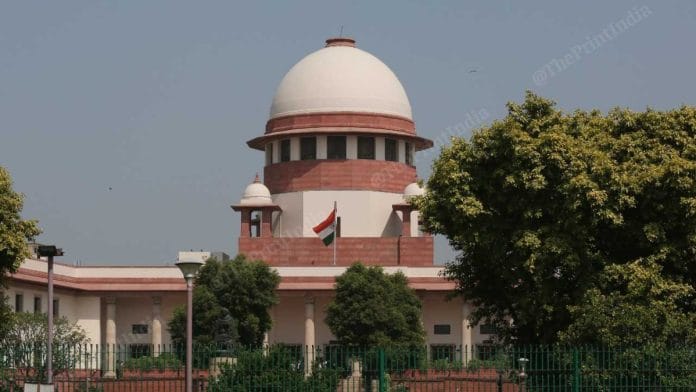New Delhi: Reinforcing the rights of senior citizens, the Supreme Court said last week that tribunals can order the transfer of properties back to elderly parents, if conditions mentioned in the gift deed are violated.
A gift deed is a legal document used to transfer ownership of a property from one person to another as a gift.
Section 23 of the Maintenance and Welfare of Parents and Senior Citizens Act, 2007, allows tribunals to declare a gift or transfer of property by a senior citizen to be considered as made out of fraud, coercion or undue influence, in cases where such a gift is made on the condition that the transferee will provide basic amenities or physical needs to the senior citizen and has failed to provide them.
The property in question here was one gifted by a mother to her son through a gift deed in 2019. Observing that the son, after receiving this property, started neglecting his parents and making further demands, the court proceeded to quash the gift deed. It restored the property to the mother.
Underlining the need for a liberal interpretation of the 2007 act, a bench of Justices C.T. Ravikumar and Sanjay Karol said in an order, “The preamble of the Act states that it is intended towards more effective provisions for maintenance and welfare of parents and senior citizens, guaranteed and recognised under the Constitution.”
The 2007 Act is a beneficial law, aimed at securing the rights of senior citizens, given the challenges they face, the court noted and it is against this backdrop that the legislation must be interpreted.
Also Read: In ‘one-of-a-kind’ order, SC grants bail to POCSO accused on condition he pays child support
The case’s journey to the top court
The case originated from a dispute between senior citizen Urmila Dixit and her son Sunil over the property she had purchased back in 1968.
In 2019, she executed a gift deed in favour of her son on the condition that he would provide for her and maintain her.
Nearly a year later, Urmila approached the sub-divisional magistrate (SDM) of Chhatarpur in Madhya Pradesh, saying that she and her husband were attacked by their son and that she sought to set aside the gift deed. Although Urmila was granted relief by the tribunal in 2021, her son challenged this before the Madhya Pradesh High Court.
In April 2022, a single judge upheld the 2021 order, observing that the son hadn’t approached the court with clean hands and failed to serve his elderly parents. Subsequently, the case came before a two-judge bench of the high court in Jabalpur. In October 2022, it set aside the earlier orders and ruled in favour of the son.
In its decision, the two-judge bench reasoned that a tribunal’s only function is to find out whether the condition in the gift deed contains a clause providing for basic amenities and whether the transferee has failed to provide for them. Subsequently, the mother moved the apex court, challenging the order.
Laws invoked & what the court said
In the present case, Urmila had filed her plea under Sections 22 and 23 of the 2007 Act. The former says that the state government can authorise district magistrates to ensure the provisions of the Act are carried out, while the latter enumerates circumstances where the transfer of property by senior citizens can be declared void by a tribunal.
One such circumstance described under Section 23 is if the transferee refuses or fails to provide basic amenities to the transferor that were mentioned as a condition in the deed. In such a scenario, the transfer of property will be considered to have been “made by fraud”, coercion, or undue influence.
Setting aside the two-judge bench ruling, the Supreme Court cited its 2021 decision in S. Vanitha v. Deputy Commissioner, Bengaluru, to say that, under the Act, tribunals may order eviction if “necessary and expedient” for the protection of senior citizens.
“It cannot be said that the Tribunals constituted under the Act, while exercising jurisdiction under Section 23, cannot order possession to be transferred. This would defeat the purpose and object of the Act, which is to provide speedy, simple and inexpensive remedies for the elderly,” the court said in the order.
(Edited by Sanya Mathur)
Also Read: As SC Collegium considers proposal to tackle nepotism, how the bar views the possible move






